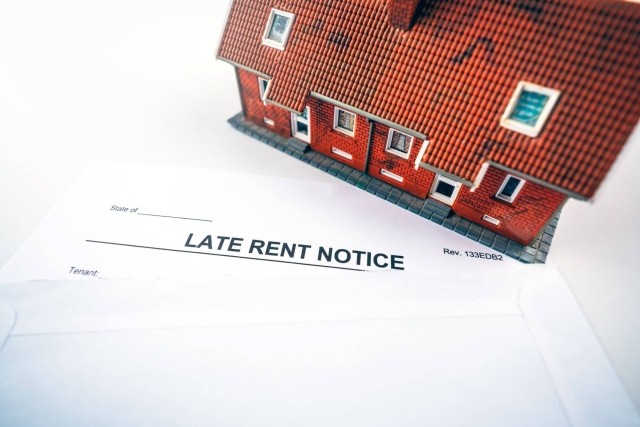
Negotiating rent prices can be tough for a landlord. On one hand, you want to satisfy your renters and keep their business. But on the other hand, you don’t want to lose profit and decrease your rental income.
Whether negotiating with tenured residents or prospective renters, you should always be open to discussing rent prices. Though these conversations can be a bit daunting, they’re necessary if you’re going to find a way to satisfy both your and your renter’s needs.
When to Consider Negotiating Rent
When a renter asks to negotiate rent, it’s normal to have a knee-jerk reaction. As a landlord, you might be opposed to the idea at first. However, if you consider internal and external factors affecting your rental, you may come to realize that negotiating is the best course of action. If you’re on the fence about negotiating rent, consider the following factors to determine your next steps.
Recognize market conditions and trends
Rental market conditions are always fluctuating. While at times it might be a landlord’s market, there are other times when the ball will be in the renter’s court. While you can never be sure where the power may lie, researching local market conditions and trends will give you a good idea. In doing so, you should consider factors such as local vacancy rates, economic indicators, and seasonal trends.
Understand your renter’s circumstances
If you have a good relationship with your renters, you may have some intel about their personal and financial situations. Perhaps they recently lost their job and need a rent reduction. Or maybe they’re experiencing medical issues or family matters that affect their ability to pay. There are so many reasons why a renter might want to negotiate their rent. If your renter discloses these reasons with you, be open to listening and consider what you can do to accommodate their needs while still satisfying your own.
Conduct a rent comp report
A rent comp report can be a huge deciding factor when negotiating rent prices. Rent comps, or rent comparables, are properties of similar size, amenities, and location to your own. In a rent comp report, you can analyze the performance of these similar properties and use that information to price your rental. That way, if a renter asks for reduced rent, you can reference recent rent comps to make a fair decision.
When listing your rental on Apartments.com, you’ll receive complimentary rent comp reports to set your monthly rent. These reports will provide a clear market overview, allowing you to gauge your property’s value against similar ones and set a fair market price. Consider these reports to be preventative measures, as setting a fair rent price from the get-go will minimize potential negotiations down the line.
Exploring Rent Concessions as an Alternative
Rent concessions are a great alternative if you don’t have wiggle room to negotiate rent. A rent concession is used to incentivize renters to sign a new lease or renew an existing lease. They are most commonly used when landlords need to fill a vacant unit, as vacancies can significantly reduce overall profit. For example, you might waive the first month’s rent for someone interested in a vacant property. Doing so will hopefully persuade them to sign the lease and fill your vacancy.
Types of rent concessions
Rent concessions can range from material items to waived rules or fees. Existing renters will typically request specific concessions. However, you can always offer concessions of your choosing as well.
Below are some of the most popular rent concessions among renters:
- Free or prorated first month’s rent
- Reduced rent for a one-year lease
- Waived fees for move-in, pets, etc.
- Reduced or waived security deposit
- Updated home décor and appliances
- Waived rules for painting walls
- Coverage for broker’s fees and moving costs
- Free use of on-site amenities
- Free internet/utilities
Benefits of offering rent concessions
Offering rent concessions is a great way to meet your renter in the middle. While they might not equate to reduced monthly rent, concessions typically relieve a renter of some financial burden. And for you, the landlord, rent concessions can help maintain your rental income while keeping renters satisfied.
Below are more examples of ways rent concessions can help you and your rental property:
- Attract quality residents
- Reduce vacancy rates
- Increase renter retention
- Maintain renter satisfaction
- Help your rental property listing stand out
Assessing the Financial Feasibility of Rent Negotiation
For a landlord, negotiating rent prices is all about weighing risk vs. reward. Will discounting rent financially hurt or help you? Will it be less costly than finding a new occupant? These are the questions you must ask yourself when negotiating with renters. The goal here is to minimize risk and determine whether you’re better off settling for negotiated rent or finding someone willing to accept your current pricing.
Calculating potential revenue impact
When opening the floor to negotiations, consider how discounting rent will affect your revenue. Compare the current rent to the proposed rent and estimate your projected income over the lease period with the new rate. In doing so, you’ll also want to account for expected occupancy rates, potential gaps between renters, and additional costs that could come from negotiations like property upgrades or rent concessions. Then, once you have a total estimate, you can determine how long it will take to break even with the new rent rate. Using this break-even analysis, you can determine how much wiggle room you have for negotiations and counteroffer the renter if needed.
Weighing Negotiated Rent Against Turnover Costs
You should always consider renter turnover costs when negotiating prices. Say your current renter wants a rent reduction. You decline, and they end their lease. As a result, you’ll face several turnover costs for cleaning services, property damage, rental advertising, and vacancy expenses. These costs can add up very quickly and result in significant financial loss.
Financial loss is just one of the consequences of renter turnover. Additionally, you also risk the loss of a quality, tenured resident. When negotiating rent prices, consider the quality and reliability of your current occupants vs. the uncertainty of new ones. If you let a good renter go, you could end up with a new, problematic occupant if you’re in a rush to fill a vacancy. And when it comes to problematic renters, there’s no telling how much destruction they might cause to your property, reputation, or bank account.
Effective Strategies for Negotiating Rent Prices
Effective negotiation requires preparation. For a landlord, this means researching market trends, knowing your property’s value, and preparing potential concession options. It also means learning how to be a clear and honest communicator. You want to act professionally and courteously to build trust and respect with your renter. Doing so will help you both come to agree on a mutually beneficial solution, whether that be altered rent or some sort of concession.
Preparing for the negotiation
There’s a lot of groundwork to cover when preparing for rent negotiations. First and foremost, you’ll need to study market trends and evaluate rent comps, as we mentioned earlier. This way, you’ll have supporting data to argue against negotiations if needed. Remember to take note of average rent prices in your area, vacancy rates, and other economic indicators.
If you suspect a tenured resident will attempt to negotiate rent, consider looking into their rental history. Did the resident pay their rent in full and on time every month? Have they demonstrated lease compliance? These are all factors to consider when negotiating rent with a resident. If they have a good track record, you might give them some wiggle room for negotiations. However, you might not be as forgiving if they have a history of late rent payments or property damage.
Rent concessions might also be a part of your preparation process. Perhaps your property has pre-existing damage, and you plan to conduct renovations during a resident’s lease. In this case, you could prepare some rent concessions to offer before a renter approaches negotiations. Additionally, you might prepare thoughtful responses to address your renter’s potential concerns or objections. It’s better to get ahead of these issues before your renter brings them up!
Communicating transparently with renters
Communication is key when negotiating rent prices. For both parties to come to a mutual agreement, everyone must be open and honest while maintaining professionalism and courtesy. Otherwise, you risk tarnishing your relationship with your renter and potentially losing their business altogether.
Throughout your conversation, you should allow your renter to express their concerns and circumstances. Demonstrate active listening and use positive language when responding to their points. Do so with a professional tone that exhibits respect for your renter. If you disagree with their proposed negotiations, follow up with concrete, supporting data related to rent comps, property improvements, and market trends. Showing valuable evidence will help your renter better understand the situation from a landlord’s perspective.
Last but not least, make sure to document all negotiations in writing, either as part of the lease or as an addendum. This should include all correspondence between you and the renter, including follow-up information as well. Keeping this documentation will do you well in the long run, especially if there are more disputes regarding rent prices down the line.
How Apartments.com Can Help with Rent Negotiations
The rent negotiation process can be tricky. However, with help from Apartments.com, it doesn’t have to be! We offer a comprehensive suite of Renter Tools that simplify lease management, market research, applicant screening, and more. With our resources, you can seamlessly communicate with renters and make informed decisions about your rental. Then, before you know it, rent negotiation won’t seem so scary!
Successfully negotiating rent is all about understanding your local rental market, your resident’s circumstances, and your personal financial goals. Once you’ve considered all of these, you can determine whether you’re willing to negotiate price or offer rent concessions as an alternative. When you’ve reached a decision, make sure to communicate clearly and professionally with your renter. Be open to what they have to say but also stand your ground if you have a strong supporting argument. Remember, your goal is to maximize your rental income while still satisfying your renter’s needs.











